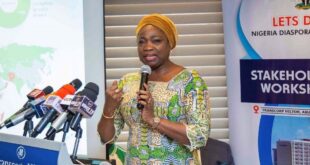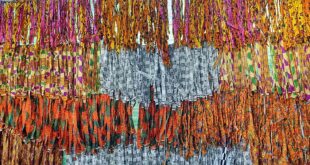EDITORIAL
Nigeria shows why civil society, including the Diaspora, must urgently join the efforts to contain the spread of the new coronavirus in Africa to avoid disaster, writes Femi Awoniyi
The World Health Organisation, international humanitarian organisations, such as the Bill and Melinda Gates Foundation, and Western scientists have warned that Africa could be the next epicentre of the coronavirus (COVID-19) pandemic if care is not taken.
Horrendous potential casualty numbers have been mentioned as the likely outcome of failure to effectively contain the spread of the virus in the continent perhaps to scare all stakeholders – African governments, the EU, the UN, international humanitarian organisations etc – into serious action.
While most African countries have implemented lockdown measures along the lines of Europe and Asia, the objectives of imposing these measures seem to be missing on some African governments.
For example, social distancing is difficult to observe in Nigerian urban areas, such as the city of Lagos, where up to 5 persons live in a single room with tens of inhabitants of a house sharing kitchens, toilettes and bathrooms. Yet, there is no attempt to design a solution to that peculiar problem.
Also, portable water is not available in most of the low-income, high-density districts in the big cities, making intensive practice of personal hygiene, such as frequent hand washing, difficult.
Moreover, practical measures to mitigate the hardship that a lockdown will unavoidably cause a large section of their populations who eke out a living daily were not factored into the implementation of the containment programmes. This has resulted into people, struggling to feed themselves and their families, to sometimes disobey the stay-at-home orders.
The law enforcement agents have been reacting to such infractions with sometimes unbelievable brutality. According to human rights organisations, 21 Nigerians have been killed by the police and the army in the course of enforcing the lockdown while the official number of persons who have died as a result of COVID-19, the disease caused by the coronavirus, is 19 (as of 18 April). In effect, more people have been killed by agents of the state than the disease itself in Nigeria so far.
Political leaders for obvious reasons are not trusted by the people to act in their best interest in Nigeria like in most of Africa. The state that the people hold responsible for their problems will hardly be trusted when it says it’s acting to save the same people from an invisible enemy like the coronavirus.
This lack of trust between the leaders and the people is again accentuated by the selective way the government enforces the measures it has put in place ostensibly to protect the people.
Politicians, senior government officials and wealthy individuals did not obey some of the anti-coronavirus public orders, such as having to go into quarantine after returning from overseas trips, at the beginning of the outbreak in Nigeria.
Also, as part of its containment measures, the government has repeatedly said that corpses of persons who die in hospitals of the virus will not be released to their families to avoid burials causing the further spread of the infection in the population.
On Saturday, the burial of a top adviser of President Muhammadu Buhari, who died of complications from a coronavirus infection, was carried out openly and even televised live with dignitaries congregating to pay their last respects to the man.
Mallam Abba Kyari, the deceased Chief of Staff to the President, who died on Friday, was treated in a private hospital in Lagos where he succumbed to the disease.
Meanwhile, Dr Osagie Ehanire, the Minister of Health, has repeatedly said the federal government has not accredited any private hospital in the country to treat COVID-19 patients, threatening sanctions against any erring medical practitioners. The government policy is that privately run medical facilities must refer all COVID-19 cases to government facilities.
What should the people make of these signals? The people will rightly think little of government measures and suspect sinister motives behind its action aimed at fighting the coronavirus pandemic in the country.
This shows that government can’t be left alone to wage the war against this virus in Nigeria as the people will most likely not follow public directives, orders and advice. Yet failure to decisively tackle the pandemic will inevitably lead to disaster in the country, where the healthcare system is fragile and the very economy weak.
It’s time that civil society, including especially the diaspora, intervened through sensitisation campaigns by letting their communities at home know that coronavirus is real and that they should comply with public orders and observe universal rules to protect themselves. Civil society should become co-leaders of the war against the coronavirus in Africa through organised and individual initiatives to avoid the disease wreaking havoc in a continent that is already challenged on many fronts.
We will be ignoring the warnings of the world to our peril.
 THE AFRICAN COURIER. Reporting Africa and its Diaspora! The African Courier is an international magazine published in Germany to report on Africa and the Diaspora African experience. The first issue of the bimonthly magazine appeared on the newsstands on 15 February 1998. The African Courier is a communication forum for European-African political, economic and cultural exchanges, and a voice for Africa in Europe.
THE AFRICAN COURIER. Reporting Africa and its Diaspora! The African Courier is an international magazine published in Germany to report on Africa and the Diaspora African experience. The first issue of the bimonthly magazine appeared on the newsstands on 15 February 1998. The African Courier is a communication forum for European-African political, economic and cultural exchanges, and a voice for Africa in Europe.






























